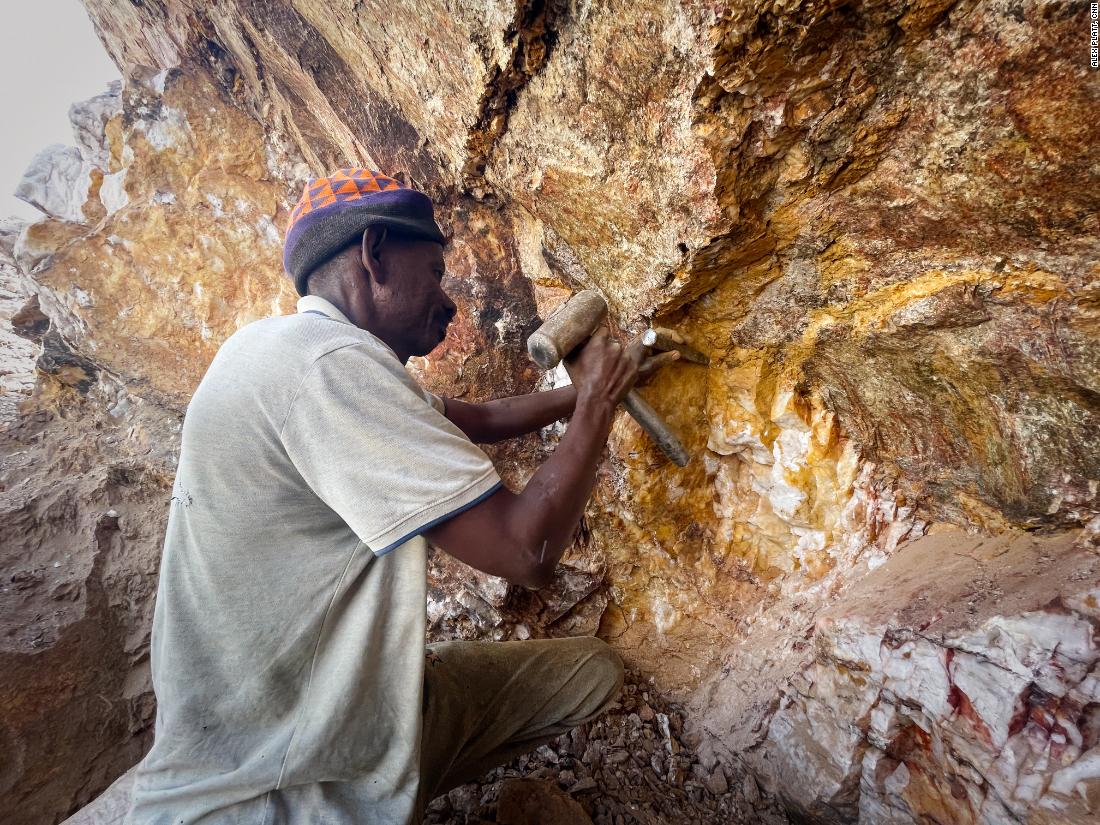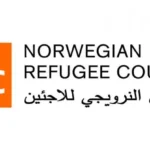By: Mohamed Osman
Amid stifling economic pressures and dwindling foreign exchange reserves, Cairo is moving to secure new sources of gold outside its borders, specifically in chaotic Sudan. Through businessman Mohamed El-Garhy, and with direct support from the General Intelligence Service, Egypt is seeking to establish a strategic foothold in the Sudanese mining sector, enhancing the Central Bank of Egypt’s ability to support the national currency and finance imports.
Recent developments indicate that Egypt has officially entered the race to control Sudan’s mineral resources, using economic fronts that complement the influence of its security institutions. Deep Metals, a newly registered company in May 2025, announced its intention to invest $277.3 million in Sudan, despite the company having no previous operations in the country. The project was initiated by businessman Mohamed El-Garhy, owner of the El-Garhy Steel Group and a prominent representative of the capitalist circles allied with the state.
The company, founded in partnership with Sudanese businessmen Mubarak Ardol and Omar Al-Nimr, announced its acquisition of an 85% stake in the Arcadia gold mine, a relatively unknown site on the Sudanese mining map. However, the announcement sparked controversy within Sudan, prompting the Ministry of Minerals and Deep Metals to issue clarifications stating that the deal was “under discussion” and had not yet been finalized.
Behind this official ambiguity lurks a deeper Egyptian strategy overseen by the General Intelligence Service, which has been coordinating the gold file since 2022. The agency, which wields increasing influence in managing sensitive economic issues, sees Sudanese gold as a dual opportunity: bolstering the reserves of the Central Bank of Egypt and securing a strategic outlet in a country that is a natural extension of Egyptian national security in the south.
Mohamed El-Garhy is considered a link between the state and financial circles. In addition to his chairmanship of the Iron and Steel Group, which expanded after 2011, he holds a parliamentary seat for the Nation’s Future Party, the political arm closest to the presidency. He also maintains direct ties with the leadership of the General Intelligence Service, particularly with Major General Mahmoud el-Sisi, the president’s son and deputy head of the agency, who oversees strategic economic affairs.
Sudanese sources confirm that a meeting held in early September between Sudanese Mining Minister Nour El-Daim Taha and his Egyptian counterpart, Karim Badawi, in Cairo effectively paved the way for the project’s launch. Discussions focused on “strategic cooperation in the mining sector”—a term often used to cover commercial agreements with a security nature.
Egypt’s motives are clear: a severe shortage of foreign currency, external debt pressures, and rising import costs, especially after the decline in Gulf support since 2023. Egypt’s gold reserves reached approximately 128.6 tons in mid-2025, while total foreign currency and gold reserves reached only $48.7 billion—a figure insufficient to cover long-term import needs. Cairo is therefore seeking to increase its gold stockpile from direct sources in Africa, primarily Sudan.
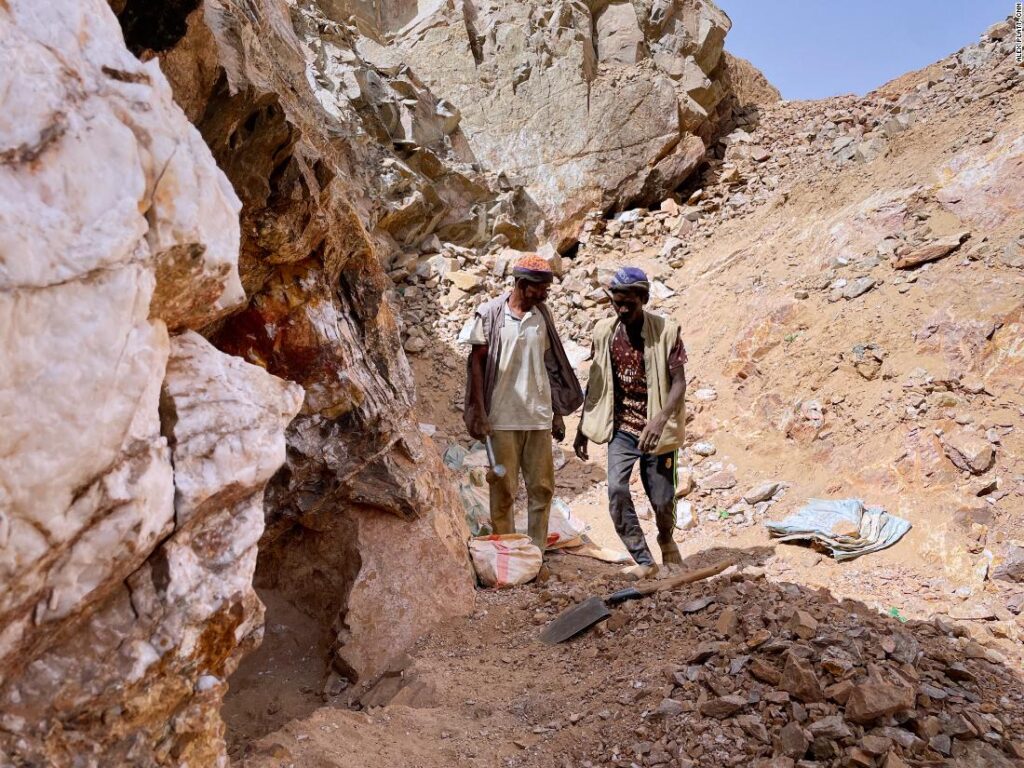
In contrast, Sudan is experiencing an economic crisis that worsened after the UAE trade embargo in August 2025. Abu Dhabi was Sudan’s primary trading partner, with trade volume reaching $2.2 billion in 2024. This embargo opened the door to a shift in the map of economic partners, with Mining Minister Nour El-Daim Taha beginning advanced negotiations with Egypt and the Sultanate of Oman to secure alternative outlets for gold exports.
As Deep Metals seeks expansion, Sudanese partner Mubarak Ardol stated that the joint venture is negotiating to acquire four mines: three gold mines in Gedaref, the Red Sea, and the Nile River, in addition to iron deposits in Northern State. These areas fall within the Sudanese military’s sphere of influence, making Egyptian investment safer compared to areas experiencing clashes between the armed forces and the Rapid Support Forces.
However, rapid developments prompted authorities in Port Sudan on September 15 to issue a decree stating that gold purchases and exports would be exclusively within the jurisdiction of the Central Bank of Sudan, a move aimed at regaining control over a sector dominated by smuggling and informal transactions. This decision, however, was not interpreted as an obstacle to cooperation with Egypt, but rather as a regulatory framework paving the way for direct dealings between the two countries’ financial institutions under the auspices of the General Intelligence Service.
On the political level, Egypt’s actions demonstrate Cairo’s adoption of a hybrid economic-security approach toward Sudan: supporting the regime in Port Sudan through official and semi-official investments, while simultaneously ensuring long-term influence in the mining sector, one of Sudan’s most important sources of income.
Security economy
Egypt is operating in Sudan based on a security economy” logic, where natural resources become a tool for ensuring financial stability and geopolitical control. The establishment of Deep Metals is not a purely investment project, but rather a strategic front aimed at integrating the General Intelligence Service into external economic activity, within a comprehensive vision of exploiting regional crises.
Cairo seeks Sudanese gold as a last line of economic defense in light of the weakness of Gulf support and the difficulty of obtaining international borrowing, while Sudan views Egypt as a relatively safe partner that can compensate for the loss of the Emirati market. However, this intersection is fraught with tension: Cairo prefers closed institutional channels that guarantee control, while Sudan seeks broader, multifaceted partnerships.
Data points to a scenario with two possibilities: economically, consolidating Egypt’s influence in the mining sector and linking it to the Central Bank of Egypt; and security-wise, strengthening the General Intelligence Service’s presence deep within Sudan as an extension of its influence in Libya and South Sudan. This is a golden strategy in an investment guise, transforming the economic crisis into a long-term influence project through commercial fronts.
While more than a million Sudanese work in artisanal mining across 12 states, since the outbreak of war in April 2023, Sudanese gold has transformed from a local resource into a strategic tool that finances conflicts and feeds complex regional interests. A report by the Royal Institute of International Affairs (Chatham House) confirms that the conflict over gold links Sudanese military actors with neighboring countries seeking to consolidate their influence, making the mineral a focus of internal and external competition with repercussions that extend beyond Sudan’s borders.
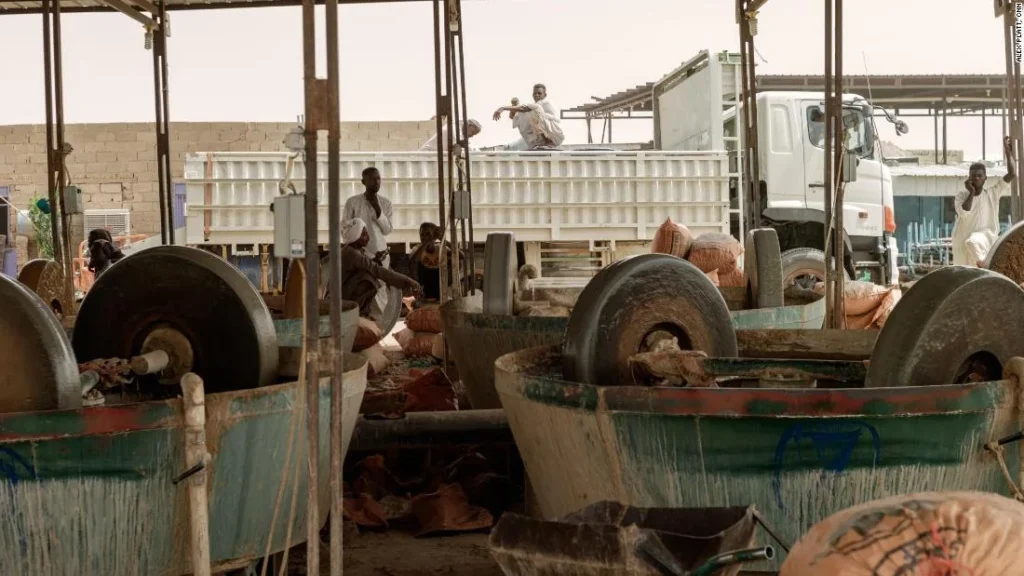
Mining conflict
The Sudanese Armed Forces (SAF) and the Rapid Support Forces (RSF) are competing over production areas, which have become a financial lifeline for military operations. In 2024, official gold production amounted to approximately 64.36 tons, 83% of which was from traditional mining, 9% from industrial production, and 7% from waste processing. Authorities were able to officially export 27.96 tons, worth $1.6 billion.
But the official figures conceal a larger reality: a significant portion of the gold is smuggled from areas controlled by the Rapid Support Forces across the borders with Egypt, Libya, and Chad. An estimated 60% of the production of the River Nile, Northern, and Red Sea states is smuggled daily, equivalent to more than 60 tons since the beginning of the war.
Export routes
Gold accounted for approximately 91% of Sudan’s exports in 2024, valued at over $1.52 billion. Internal entities are seeking to divert gold to Egypt to take advantage of the price differential: the price of a gram of 21-karat gold in Egypt reached approximately $85, compared to $55–60 in Sudan, increasing profits by up to 80%.
Gold smuggling has expanded to neighboring countries such as Libya, Egypt, Chad, South Sudan, and Uganda. In Libya, it is used to finance fuel and arms smuggling networks. Gold has also become a means of payment within human smuggling networks, with refugees being asked to pay for their passage to Egypt in gold amid the collapse of the formal banking system.
International and regional efforts
The report notes that Saudi Arabia and others are making mediation efforts to stabilize the Red Sea, but regional countries are competing for influence by controlling gold supply chains. The report emphasizes that any political settlement in Sudan must include regulating the gold trade according to international standards such as CRAFT and the OECD, encouraging refinery audits, and restricting trade in gold extracted from conflict zones. It also recommends forming an international coalition comprising regional and international countries to pressure the parties and halt the financial and military support that fuels the conflict.
fuel of war
The bottom line is that gold is no longer just an economic commodity; it has become fuel for war, a smuggling currency, and a tool of regional influence. If this crisis is not addressed within a comprehensive vision, gold will continue to fuel a long-term conflict whose repercussions extend beyond Sudan’s borders to the entire region.
The importance of gold in Sudan extends beyond its economic role; it also serves as a pivotal element in the ongoing conflict. On June 11, 2025, the Sudanese army announced its withdrawal from the border triangle following a coordinated attack launched by the Rapid Support Forces in cooperation with the Libyan “Sabil al-Salam” militia, which is supported by Haftar. This withdrawal was not only a military retreat, but also a strategic blow that deprived the armed forces of a vital position in one of the most important smuggling corridors in North Africa.
Only about 30% of the ore is extracted in the first phase, while huge quantities are wasted in the form of fine particles, of which approximately 4.95 tons are recovered, representing only about 7% of the total production. The border triangle is a major gateway for Sudanese gold smuggling, making it a strategic target for the Rapid Support Forces (RSF), which seeks to control the Akasha and Nile River mines. The RSF-affiliated Al-Juneid Company operated at least three mines before the war.
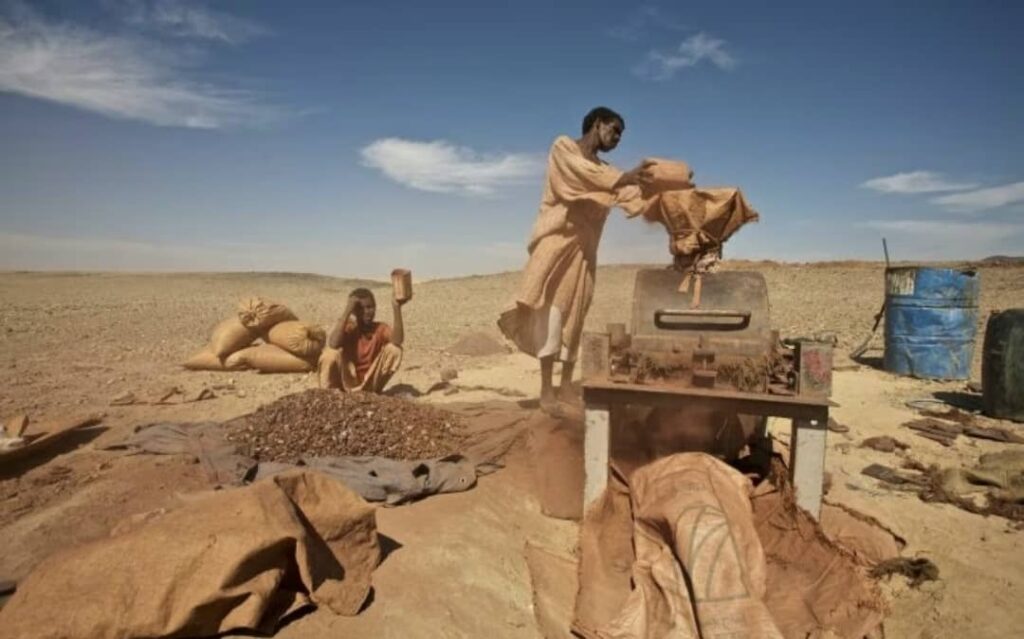
The conflict is not limited to the north. In Darfur, battles are raging between the army and the Rapid Support Forces (RSF) for control of El Fasher, a major hub for the region’s mineral wealth. The region includes four major mining areas, most notably Al-Qalaya and Al-Qatma, where thousands of prospectors work. Control of these areas translates directly into funding for the military machine: according to a report submitted to the Security Council in November 2024, the RSF extracted gold from mines under its control worth an estimated $860 million in just one year. In contrast, the Sudanese government based in Port Sudan indicates that gold production from areas under army control generates monthly revenues estimated at $150 million, or approximately $1.6 billion annually.
UAE and Russia: Two Pivotal Players
Tensions are not limited to local actors; they extend to external players. The UAE plays a pivotal role in fueling the conflict, not only through financial and military support for the Rapid Support Forces (RSF), but also through its dominance of gold smuggling networks. Some estimates estimate that 50%–80% of production is smuggled, and that approximately 90% of this quantity ends up in the UAE, making Abu Dhabi a potential center for gold laundering and re-exportation under legal cover. In January 2025, the United States imposed sanctions on seven Emirati companies for allegedly financing the RSF through the Sudanese gold trade.
In contrast, Russian intervention is evident through groups like Wagner, which officially entered Sudan in 2017 and has become a major player in prospecting and facilitating the gold trade.
A CNN investigation documented 16 secret flights from Sudan to Russia over a year and a half, carrying large quantities of smuggled gold, operated by the Al-Sulaj company, which operates as a front for the Russian company Meroe Gold. In January 2025, the United States accused Russia before the Security Council of financing both sides of the conflict through the gold trade.
Meanwhile, the Blood Gold report revealed in late 2023 that Russia had laundered approximately $2.5 billion in proceeds from illegal African gold since its war with Ukraine, and generates more than $100 million per month from the illicit gold trade in Sudan, the Central African Republic, and Mali, bolstering its ability to finance its military and political influence on the continent and beyond.

